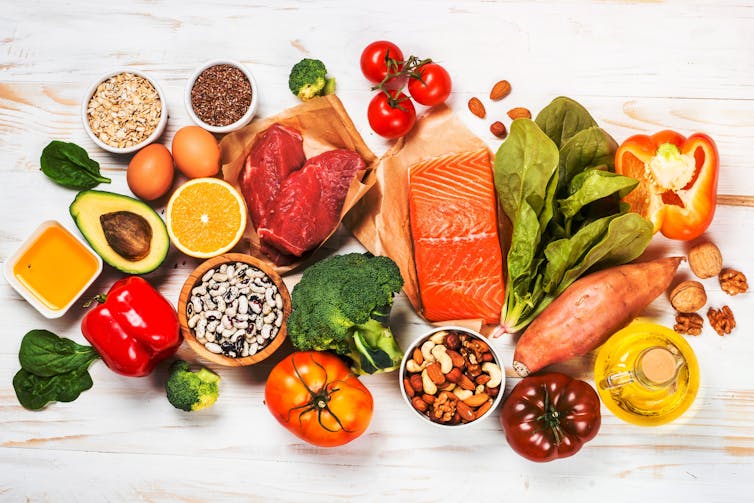The start of the new year brings inevitable pressure to start fresh, with new hobbies, exercise regimes and healthy diets. But there is one diet you may not have thought of improving this year: your media and news consumption.
It’s not easy to stay informed these days. We have more access to information than ever, but not all of it is good quality. Media publications are accused of bias. False stories go viral in seconds. And misinformation generated by artificial intelligence may appear in our feeds.
Many people get their news on social media. These platforms have algorithms and rankings that create filter bubbles, in which users are exposed to a tailored or personalised selection of information on a certain topic, which may be furthering polarisation.
People tend to select and consume media and information that echoes their own pre-existing beliefs. This can be due to the publications and commentators they choose to follow, or because of the algorithms controlled by platforms.
A recent review of the research on this topic, however, suggests that audiences may not be as polarised as previously thought. And algorithms may actually help increase the variety of sources someone would access independently.
Despite this, it can still be difficult to wade through the many sources, voices and opinions – particularly as people who hold very strong beliefs tend to be more vocal online. Here are a few tips to help you build a more varied and high-quality media diet.
1. Be curious about other viewpoints
Social media and personalisation algorithms feed users more of the same, in order to keep them engaged. This can mean that inaccurate information is included, so long as it fits the narrative of what the user wants to click on.
If something you come across online fits neatly in your pre-existing narrative, it may be the result of a process of self-selection, combined with algorithmic personalisation.
You can combat this by consuming information from diverse sources. Read articles from news outlets with a political alignment different from your own. Click on articles that may not be your usual fare. This may also help “trick” an algorithm into feeding you more sources you wouldn’t otherwise come across.
2. Keep an eye out for attention-seeking
Now more than ever, it is important to be aware of our own biases, and look at social and political issues with the goal of seeing things the way they are, rather than spotting the enemy. Be a scout, not a soldier.
Remember that what you read online might not be a reflection of what people think, but what they think will attract more attention (and upset more people). A 2022 study found, that in an attempt to gain a greater following, people expressed amplified versions of their actual opinions. Pay attention to who is “shouting” their opinion, and who is simply sharing.
Keep an open mind and do listen to the various arguments, but do not indulge in any one extreme view without challenging it with others.
3. Recognise and share balanced sources
The authors of the 2022 study found that social media platforms could reduce polarisation by flooding the “information environment” (users’ social media feeds) with balanced sources. Of course, most users cannot produce balanced news, nor can we predict what the algorithm will propose. However, we can recognise bias in the news and actively try to counteract it by sharing other, reliable sources.
Research suggests that social media users are more aware and critical of the news they read when they are asked to think critically and rate it. Instead of just scrolling through and clicking to the next article, take a moment to ask yourself questions about what you’ve just read. What did you learn? Who are the sources in the article? What do you still not understand?

JanAdamache/Shutterstock
4. Beware of strong emotions
Publishers and social media companies do their utmost to try and elicit strong emotions in users, particularly emotions that make them feel positive or negative arousal (awe v anger). This is because news that elicits these emotions is more likely to go viral.
If you come across content that prompts a strong emotional response, before reacting, ask yourself: is there anything in how this content is presented that is designed to make me feel this way? Is it helpful for me to feel this way? You may find that the emotions you feel drive you to take action for a cause you care about. Or, you may find that your emotions are causing you to overlook questionable information and sourcing.
A good way to check the credibility of a particular source is to read other articles by the same source, and look for evidence of inaccurate information or overblown headlines. You can also check to see if the same story has been reported on sites you know are reputable.
You may also want to add fact-checking accounts and well-respected journalists to your media diet, following them on social media or subscribing to their newsletters.![]()
Sharon Coen, Reader/ Associate professor in Media Psychology, University of Salford
This article is republished from The Conversation under a Creative Commons license. Read the original article.














